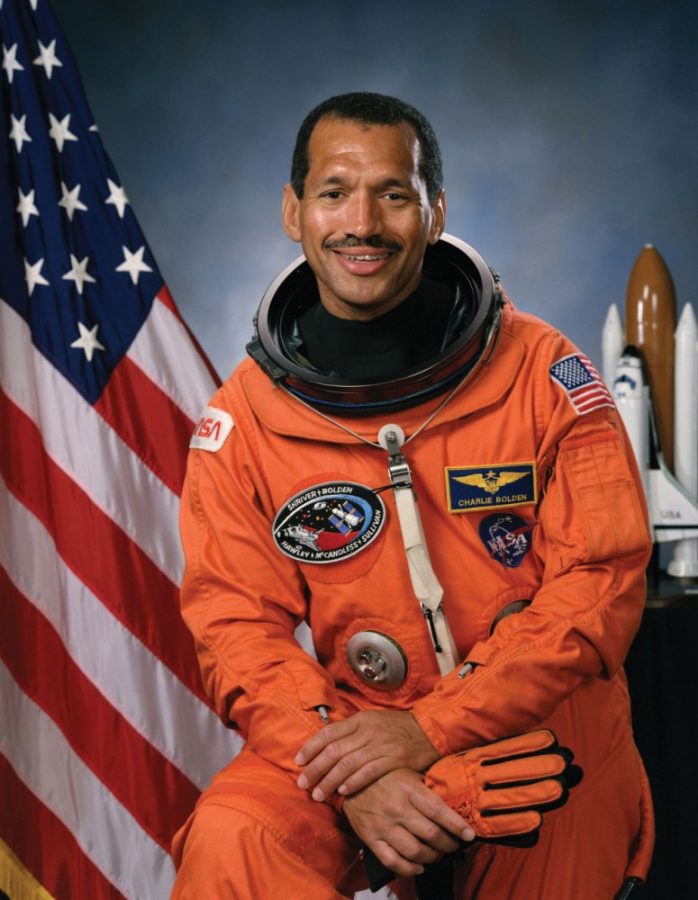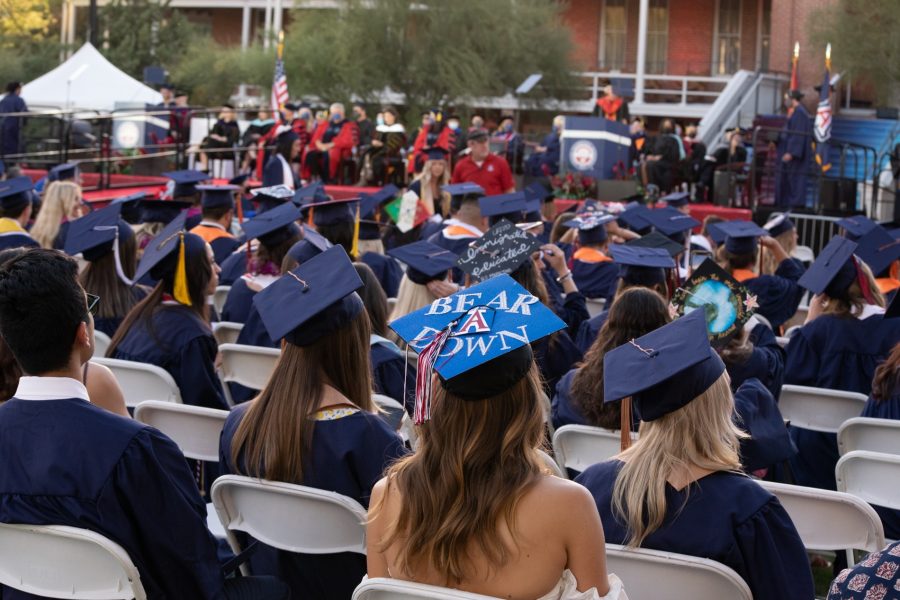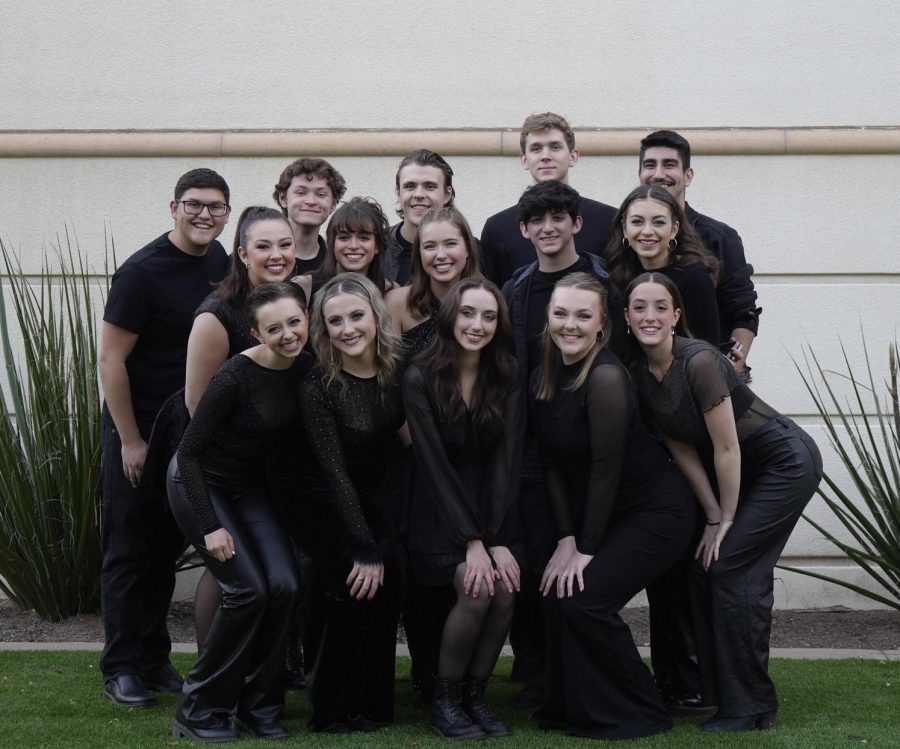This week, former NASA Administrator Charles F. Bolden will address thousands of graduating seniors at the UA’s 2017 Commencement ceremony.
Bolden, who resigned as NASA Administrator in January, is a former U.S. Marine Corps Major General and astronaut. With four missions into space, an induction into the U.S. Astronaut Hall of Fame and over 30 years of Marine Corps service under his belt, Bolden is amply qualified to address one of the nation’s top-ranking universities in science research.
The Wildcat caught up with Bolden to discuss education, his best career advice and the future of space exploration.
Q: You recently finished up a six-year tenure as NASA Administrator. What’s next?
A: Well, I’m actually already hard at work, I took a little time off, and now I’m back to being what is called a consultant. My wife and I have a two-person small business firm that consults on areas of aeronautics and space exploration, [science, technology, engineering and mathematics] education, international relations and leadership.
Q: Tagging off that, why are the fields of STEM (Science, technology, engineering and mathematics) an important area for students to pursue?
A: Well, I think it’s absolutely critical because that is the way that we move into the future; that’s the way we guarantee that we’ll be able to reach some of the destinations outside our own solar system that humanity is constantly seeking.
RELATED: Looking to yesterday and tomorrow with OSIRIS-REx
Q: Where do you see the future of space exploration taking us?
A: I think the immediate future of space exploration, in terms of robotics exploration, will find us going farther and farther out in the solar system. NASA, along with its partners, has already been able to explore every one of the nine plus one planets in our solar system.
We’re on the verge of returning launches of humans to the Florida Space Coast later this year or early next year. And then NASA’s next goal is on to Mars with humans in the beginning of the 2030s.
Q: During your time as NASA administrator, you weren’t afraid to take on some challenging missions, such as landing a rover on Mars and the OSIRIS-REx mission. Why are these missions important?
A: We believe at NASA that every time we explore another part of the universe, particularly another part of our solar system, we learn a little bit more about our own planet Earth.
We know that Earth started from the same place or the same form that other planets and other bodies in our solar system did, and so if we can go study things like asteroids, looking at the asteroid Bennu, that will allow us to learn a little bit more about our own planet Earth.
RELATED: Wildcat science: A year in review
Q: What would you say is your greatest career accomplishment?
A: I don’t know that I have any proudest career accomplishment. I think the thing about which I’m most proud is my almost 50-year marriage to my wife now; we’ll celebrate our 49th wedding anniversary this coming June. That has given us two of the best kids that I think anybody’s ever had, my son and daughter.
[In terms of] the Marine Corps and NASA, I think among my most exciting and memorable times would have to be my tenure as the Deputy Commandant of Midshipmen of the U.S. Naval Academy between 1994 and 1995, where I was a part of the team that helped produce young men and women to come into the naval service.
And then at NASA, not just my own experience there as an astronaut but coming back and having an opportunity to work with President Obama and get the present vision for NASA set in place. We’re seeking to, [in] the words of our vision, make life better for all humanity.
Q: Many students here on campus are also members of the armed forces. Do you have any advice specifically for them?
A: You have chosen to be among the 1 percent of the American public that’s willing to sacrifice in service to this nation as a member of the armed services, and you are to be thanked for that.
I would say continue to do those kinds of things you learned as a member of our uniformed service in pursuing your own [career] outside the military. Think about the STEM fields; think about teaching; think about using the leadership you’ve learned in the military to come out into American society and make it a better place in which we all can live, and that includes politics.
Q: What is your best advice for graduating students?
A: My number one piece of advice to them is going to be have fun. The three things I offer to everybody is study really hard. You should be studying until you pass away from this Earth, to make yourself more knowledgeable, whether it’s on things that are near and dear to you or things that you never heard about before but you want to become more knowledgeable in.
The second thing is work really hard at everything you do. I think if you work hard at it, you tend to enjoy it. Follow your passion and you’ll tend to enjoy things much more.
And then the final thing is just never be afraid of failure; never let the fear of failure keep you from doing something you dreamed of. You hope you don’t fail, but when you do fail, not if you do but when you do, learn from it and allow it to make you better the next time around.
Bolden will speak at the UA Commencement ceremony held on Friday, May 12, at 7:30 p.m. at the Arizona Stadium.
Responses have been edited for length and clarity.
Follow Hannah Dahl on Twitter.















